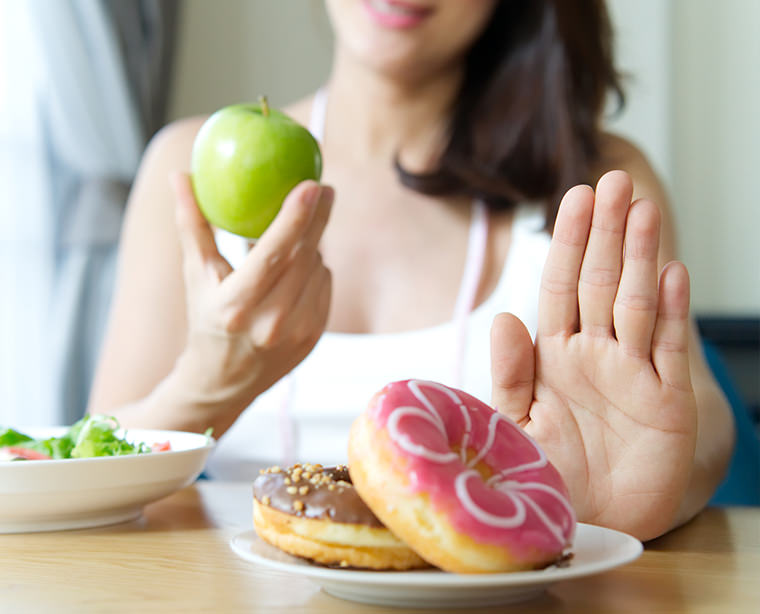

Lifestyle and eczema

Worldwide incidence of chronic diseases is steadily increasing. Obesity, heart disease, stroke, cancer, chronic respiratory diseases, etc. The seriousness of these chronic diseases is sometimes under-estimated. They are currently the leading cause of death in the world (63% of deaths according to a 2011 World Health Organization report).
This rise in chronic pathologies appears to coincide with a deterioration in our lifestyles. The latest public health challenge is thus to empower patients by helping them gain control over their health.
What are the steps to improve your lifestyle in order to better your health?
Living a healthy lifestyle feels like a vast undertaking when you consider all the various spheres this entails. You may be wondering, “Where do I start?”.
To help you, here are a few steps you can follow
Treat symptoms: by treating the red patches and hydrating your skin on a daily basis, you can reduce your suffering and itching and thus focus more on taking care of yourself. A patient with physical and psychological symptoms must first reduce their suffering in order to start making changes to their lifestyle.
Once you are able to take care of yourself and your skin, you must identify the aggravating factors of your disease:
- irritants: pollution, water quality, clothing materials, unsuitable cleansing products, etc.
- potential allergies: animals, foods, etc.
- stress factors and emotions
- microbes in the environment
- eczema itself, as it constitutes a vicious cycle
Identify possible changes: physical activity, diet, well-being... In order to ensure long-term and truly beneficial lifestyle changes, you must be aware of any potential changes and be able to prioritize them. For example, if you like to unwind with a tennis match, you will prefer this activity over meditation. Remember that these goals must remain attainable depending on the context and preferences of each individual.
Manage your team: in addition to medical follow-up, you should readily surround yourself with various professionals who will support you through this change. For example, enlist a training coach, sign up for psychotherapy, consult with a dietitian, or even meet with a kinesiologist. Anyone who can provide support and motivation throughout your journey can play an important role. The services they provide are complementary.
What does it mean to change your lifestyle, practically speaking?
Eight factors determine your lifestyle, and every patient can adapt them in their own unique way
Maintain quality social relationships
For our personal fulfillment, we need contact with other people. Surrounding ourselves with people who are sincere, loving and caring is essential. Quantity means very little, but the quality of these relationships makes all the difference.
Respect your values and rhythm of life
Our personal values reflect our personality. They make up who we are and explain why we behave the way we do, both with ourselves as well as with others.
We often let other people’s values take precedence over our own. In order to adhere to your values, you first need to get to know yourself better. Respect, pushing your personal limits, perseverance, generosity, empathy, etc.: identifying your qualities also helps to develop good self-esteem.
Every human is different physiologically. Understanding and respecting your biological rhythm helps to achieve better inner balance.
A person can live out of sync with their values or rhythm for a few years, but this imbalance eventually leads to physical or psychological health problems.
Live with your emotions
Sadness, anger, fear... emotions are an integral part of our lives. They can have a major impact on your mood and your motivations. At times, they can even paralyze you. Identifying these emotions is a first step towards acceptance on the way to better managing their consequences. Meditation calms the mind and is a great way to reduce various types of psychological stress, such as anxiety, depression and pain.
Eat healthily
With the advent of processed foods, society has skid way off course in terms of our diet. Nonetheless, food is our “fuel”. The quality of the foods we ingest each day affects our body and thus our health. Eating local and/or organic products and reducing meat consumption help stave off chronic diseases.
In the case of eczema, certain foods, beyond any potential allergies, are more or less recommended for the skin. Sugar, for example, can aggravate inflammation.
Stay physically active
Exercise enables the brain to make new connections, improves sleep and mood, and reduces the risk of chronic disease, disability or falls.
For children with eczema, sweating during sports can sometimes discourage them from physical activity. Remember, however, that simple habits, like rinsing off with water and changing your clothes right away, help relieve discomfort. For swimming, so-called “barrier” creams are available to protect against damage caused by chlorine or salt.
Physical activity is more than just sports!
Minimize exposure to toxins
Smoking, outdoor and indoor pollution, endocrine disruptors and fine particles are all substances you should avoid in your environment.
Reconnect with nature
Studies by Dr Miyazaki and Dr Qing Li have proven the benefits of trees and forests for our body and health. When we are around them, our stress levels go down, the immune system is stronger; even blood sugar and cardio-vascular risks go down. Observing, listening to, smelling or touching nature is one way to rediscover what really matters, and rediscover yourself.
Treat yourself!
Learning new skills, painting, knitting, reading/writing, singing... Anything that gives you joy and creates positive moments in your day-to-day protects against stress and depression, in addition to boosting your overall mental and physical health.
The good news: it is also at the heart of the solution! When change is forced, the risk of failure increases. For any change to be sustainable, it must be meaningful and a source of joy.
- “Become the master of your own health” workshops: 6-hour sessions, with theory in the morning and practical exercises in the afternoon, offered to patients with chronic diseases
- Chanting and “forest bathing”, mindfulness (five senses, breathing) in the Gâvre Forest (SYLVALYRIC association)


